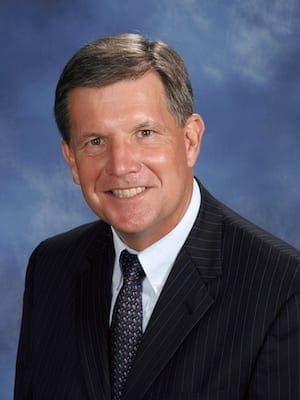Some things we want to remember, and some we want to forget. But what do we do when the things we want to forget are also the things we should remember?
As I shared a eulogy recently at Barrancas National Cemetery at the Pensacola Naval Air Station, I remembered.
As a jet flew over the pavilion just as I began my remarks, I remembered the sounds of freedom. As I scanned the landscape dotted with thousands of white grave markers, I was reminded of the costs of freedom.
As I looked into the faces of a veteran’s family, I remembered the tremendous sacrifices made by the men and women who served to preserve our freedom.
As a pastor serving in an active military community, I am privileged to serve alongside those who serve or have valiantly served our country.
But I also serve in a community where an extraordinarily large number of residents have lost a son, daughter, father, mother, brother, sister, friend or neighbor on the field of battle.
So for me, Memorial Day prompts more of a sense of reflection than celebration. Memorial Day is not just another “day off” but a day to remember those who have lost their lives in the military service of our country.
This is a day to remember those who, according to Henry Ward Beecher, “hover as a cloud of witnesses above this Nation.”
In a culture that is increasingly attention-deficient, remembering is a painful but necessary discipline.
As Margaret Fairless Barber observed, “To look backward for a while is to refresh the eye, to restore it, and to render it the more fit for its prime function of looking forward.”
Memorial Day provides a designated occasion “to look backward for a while to refresh the eye.”
Remembering stories from the battlefield may keep us consciously aware of the harsh realities of war and lead us to be more aggressive peacemakers.
Revisiting the historical narrative of our major conflicts may enable us to learn from both the successes and the failures of our ancestors.
When we remember the fallen, we keep alive the individual and corporate legacies of valor and courage that inspire and challenge us to be responsible citizens of the free world.
When we fail to remember the sacrifices of those who came before us, we succumb to a convenient amnesia that eventually robs succeeding generations of acquaintance with our national heritage.
To fail to remember creates a contagious apathy that leads to a neglect of both our freedom and our citizenship.
To fail to remember can produce a false sense of security and an inaccurate perception that we are exempt from future warfare.
If for no other reason, we should remember in order to guard against what George Washington called “the impostures of pretended patriotism.”
Remembering our unabridged heritage can invoke in us both a gut check and a reality check. The kind of remembering we need to do on Memorial Day is an uncomfortable but necessary discipline, a practice that forges vision from memory and distills wisdom from history.
This year as we observe Memorial Day, let us take time to remember the men and women who served with honor and distinction to establish and preserve our freedom.
By remembering our heritage, we may be better equipped and motivated to engage our adversaries with discernment and determination.
 Barry Howard serves as the senior pastor of First Baptist Church of Pensacola, Florida, a leadership coach with the Center for Healthy Churches and a board member of the Baptist Center for Ethics. A version of this article first appeared on his blog, Barry’s Notes, and is used with permission. You can follow him on Twitter @BarrysNotes.
Barry Howard serves as the senior pastor of First Baptist Church of Pensacola, Florida, a leadership coach with the Center for Healthy Churches and a board member of the Baptist Center for Ethics. A version of this article first appeared on his blog, Barry’s Notes, and is used with permission. You can follow him on Twitter @BarrysNotes.
Pastor at the Wieuca Road Baptist Church in Atlanta. He also serves as a leadership coach and columnist for the Center for Healthy Churches. He and his wife, Amanda, live in Brookhaven, Georgia.

